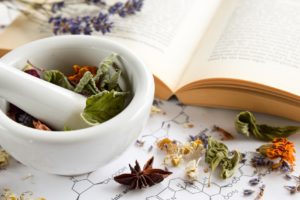Foundations of Herbalism – Year 1 Introduction Weekend 1
 Year 1, Foundations of Herbalism
Year 1, Foundations of Herbalism
Herbal medicine is the art and science of using medicinal plants. The practice of herbal medicine considers not only the use of specific herbs and supplements but also a person’s diet and lifestyle. A skilled herbalist learns to blend tradition with science and your pathway can begin here at Mid-Atlantic School of Herbalism.
Saturday, Sept 12, 10 am-12pm: ‘What is Herbalism?’
Join the MASH herbalists online for this weekend as they lead you on an exploration of the many ways to use herbs as food and plant medicine. We will start off the day by talking about the ethnobotany of plants and how they evolved alongside animals and humans, We’ll explore the concept of evolutionary herbalism and how it developed into the art of ‘western herbalism’ we practice here in the US today.
Saturday, Sept 12, 1-3 pm:- Herbal Traditions Around the World
This afternoon’s class explores origins of herbalism traditions around the world. We’ll look at various philosophies and traditions of plant medicine use including European Vitalism, Traditional Chinese Medicine, Ayurveda & Unani Tibb, the Greek & Roman Galenic-Hippocratic models, African and Shamanistic traditions.
Sunday, 10 am- 12 pm: Herbal Medicine Making: Tinctures, Glycerites and Herbal Vinegars
On Sunday morning we will learning how to make hydroalcoholic preparations (tinctures and elixirs), glycerites and herbal vinegars. We will discuss which solvents are best for using with various plants based on their phytochemistry, understand the benefits and drawbacks to using hydroalcoholic and vinegar preparations, and compare the folk and scientific method of making different preparations. We will be focusing on making medicine with herbs that can be used for building your own herbal medicine home kits.
1-3 pm: Medicine Making, Topical Preparations:
Topical preparations have been one of the main stays of herbal medicine, through the history of civilization. Records or remnants of healing balms and poultices have been found dating back to Sumerian and Egyptian times. Herbs have been used to make therapeutic compresses, plasters, fomentations, creams, pastes, salves, ointments, liniments, infused oils, suppositories, pessaries, douches, enemas, smoke treatments, and herbal hydrotherapy such as sitz and steam baths, just to name a few. Nowadays, we tend to forget about many of these traditional methods. It’s time to turn the tables back and resurrect some of these highly effective methods, so join us to learn the art of infused oils and basic salves as well as ’biblical balm’ made with frankincense and myrrh, medieval German black and yellow salves and many other methods of using ‘weeds’ from your backyard & local woods.
Sept 23 at 7 pm, Wednesday Webinar: We’ll dive into herbal classifications and constituents, plant parts to use and an overview of herbal actions so you know when, where and how to use herbs. With plenty of time for Q & A’s.
Please email your questions to:
MidAtlanticSchoolofHerbalism@gmail.com
Come and join our Foundations of Herbalism Certification through the Mid-Atlantic School of Herbalism at the Smile Herb Shop. This certification course is taught in executive format, one (1) weekend (Saturday & Sunday, 10 am-5 pm) each month (except August). Assignments and study between classes are required with some online content. A study group via web-conference is available once a month between classes. Classes are recorded, so if missed can be made up.
The one-year program leads to a Foundations of Herbalism Certificate. For those who are interested in clinical practice, students can continue on for a second year of study to gain a Professional Herbalism Certification. This advanced course also consists of 1 weekend a month, over a period of 12 months with the final 6 months, being a clinical component. If both years are completed with accompanying assignments and case studies, students receive a Diploma of Clinical Therapeutic Herbalism.

